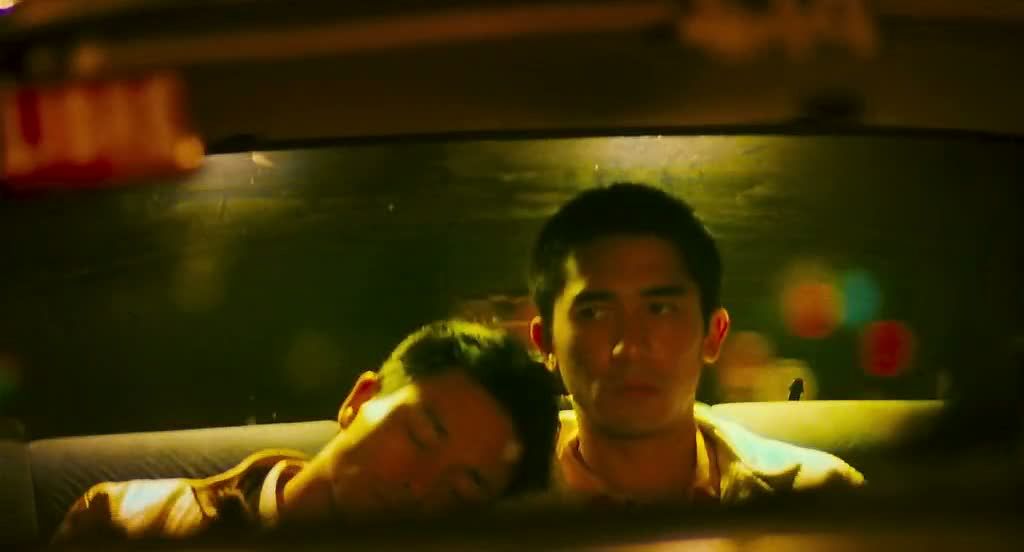
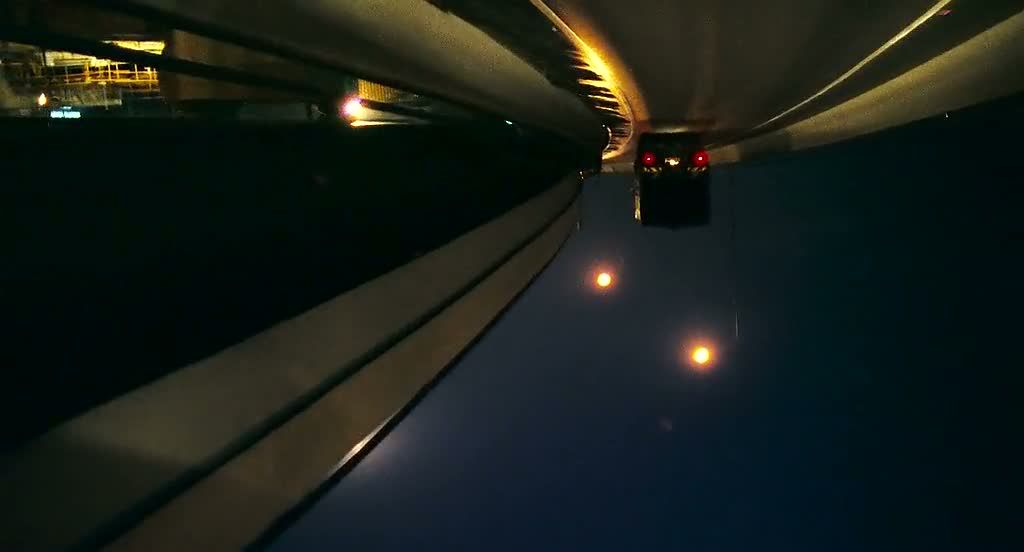
The films of Wong Kar Wai are often about people who feel very intensely, who love and hate with a fiery passion that bursts out in the garish, expressive aesthetics of the films. In Happy Together, Wong examines this kind of passion especially intimately, through the gay relationship of Ho Po-wing (Leslie Cheung) and Lai Yiu-fai (Tony Leung), who visit Argentina together as a way to reinvigorate their on-again-off-again relationship, but wind up instead merely replaying the same troubles they always have. The film is a powerfully focused examination of this disintegrating, up-and-down relationship, capturing the violent emotions, the heartbreak, the longing and desire, and the fleeting moments of happiness that are like the glue holding this fractured romance together, momentarily bridging the gulf that's widening between these two men.
That gulf is represented, in many ways, by the waterfall at Iguaza, which they promise to visit together during one of their happier moments. The falls, seen on a lamp that Yiu-fai bought — a bright and gaudy representation of the falls, lit from within by a rotating cylinder that makes it seem as if the water is glistening in the sunlight — come to represent for Yiu-fai the potential for happiness and togetherness. This trip is something they planned to do together, a goal for their relationship, a sight they could share. Wong visually suggests that it's also an abyss that might swallow them whole. An image of the actual falls is inserted early on, as a response to the hopefulness that Yiu-fai has for the trip, but the image of the reality is very different from the lamp's sunny depiction of natural splendor. It's a sensuous color image of the waterfall, all dark blues and jungle greens, inserted into the mostly black-and-white opening section of the film. The camera slowly turns around the falls, capturing the slow churning of the water and, increasingly, the drifting white smoke that begins to fill the frame as Wong's graceful camera move pushes the tumbling water itself off to the sides. In stark contrast to Yiu-fai's optimistic desire to see this place with his lover, the image is dark and sinister, an image of destruction and apocalyptic grandeur: it is a seemingly bottomless pit, filled with smoke from the violent churning of the water as it crashes into the reservoir deep below. It's a gorgeous but foreboding image, a suggestion that what waits at the end of the trip is not reconciliation but erasure, heartlessness, brutality, the cold and cataclysmic violence of nature.
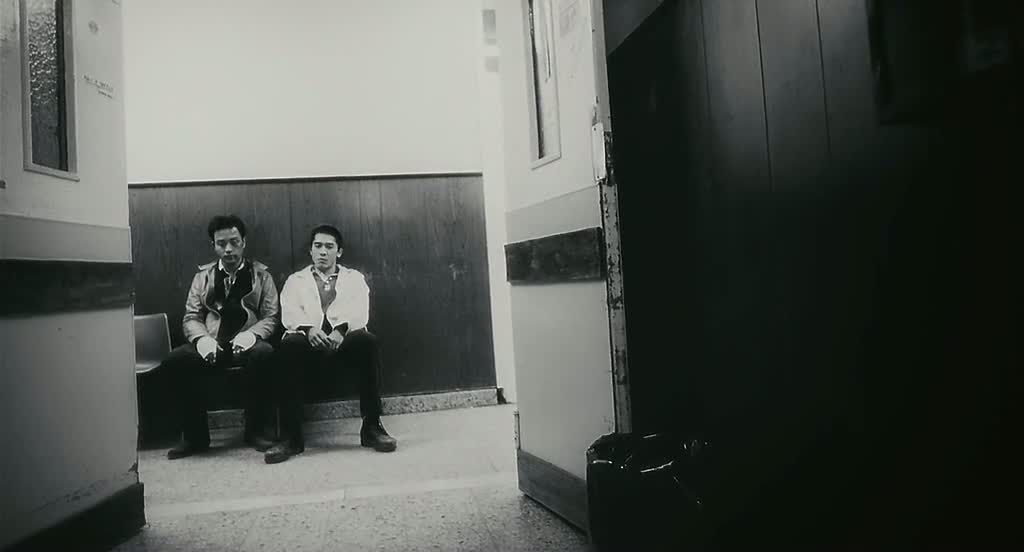
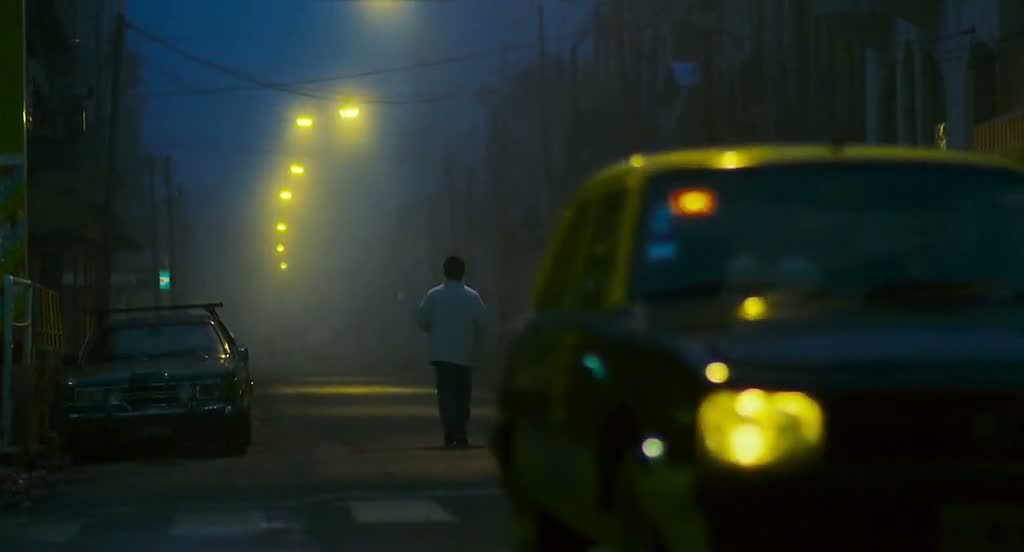
That image, so frightening and intense, lingers over the rest of the film. When that tracking shot of the falls predictably recurs at the end of the film, it provides a kind of melancholy closure, as one lover sees the falls in person, the water rushing down towards him, its spray drenching his face, while the other is left with the lamp, a gaudy and false facsimile of the real place. That's the essence of the film, the moment it's journeying towards, as Yiu-fai struggles against the confining boundaries of his unhappy relationship with Po-wing, a relationship where it's not clear who needs the other more, who's keeping who prisoner.
That dynamic plays out within some of Wong's most potent and beautiful images, as captured by his usual cinematographer Christopher Doyle. Though set mostly in Buenos Aires, Wong finds in this city a Southern hemisphere counterpart to his home base of Hong Kong, which perhaps explains the sequence where Yiu-fai, realizing that he is in the other half of the world from his home, imagines what Hong Kong would look like upside-down. The answer, as envisioned by Wong, is indeed turned upside-down but not otherwise that different, as he finds in Buenos Aires a similar late-night neon vibe, all hazy lights and poetically empty street scenes, occasionally interrupted by a bright, summery daytime scene where the sun fades the images to a white glare. That impression is introduced slowly into the film, as most of the early scenes play out in a crisp, high-contrast black-and-white, with only selected moments rendered in the characteristic warm, brilliant colors of the Wong/Doyle collaborations. When, after Yiu-fai and Po-wing are reunited following some time apart, the film explodes into full, sumptuous color during their cab ride back to Yiu-fai's apartment, it's as though the fullness of the couple's conflicted emotions have finally exploded to the surface of the film.
Despite these strong emotions, Happy Together is more relaxed and languid than previous Wong Kar Wai films, in which unpredictable violence could erupt at any moment, and this film looks forward to the slow, sensuous rhythms of In the Mood for Love rather than the the frantic tempi of most of the preceding films. The body of the film focuses on the lovers' uneasy reunion, as Yiu-fai tries to hold onto the unstable Po-wing, who obviously needs and cares for Yiu-fai but still can't help straining against the bounds of their relationship, going out, sleeping with other men, prostituting himself with American tourists. The relationship settles down slightly when Po-wing is beaten up by some of his clients for stealing a watch, and Yiu-fai tends to his lover during his recovery. The scenes of tension and arguing are offset by scenes of surprising tenderness and affection, like a sequence where Po-wing teaches Yiu-fai to dance, and the dance slowly becomes a gently swaying embrace. This scene, like the opening's disarmingly explicit and erotic sex scene between the men, establishes the stakes of their troubled love, the real depths of feeling upon which their often fractious relationship is built.
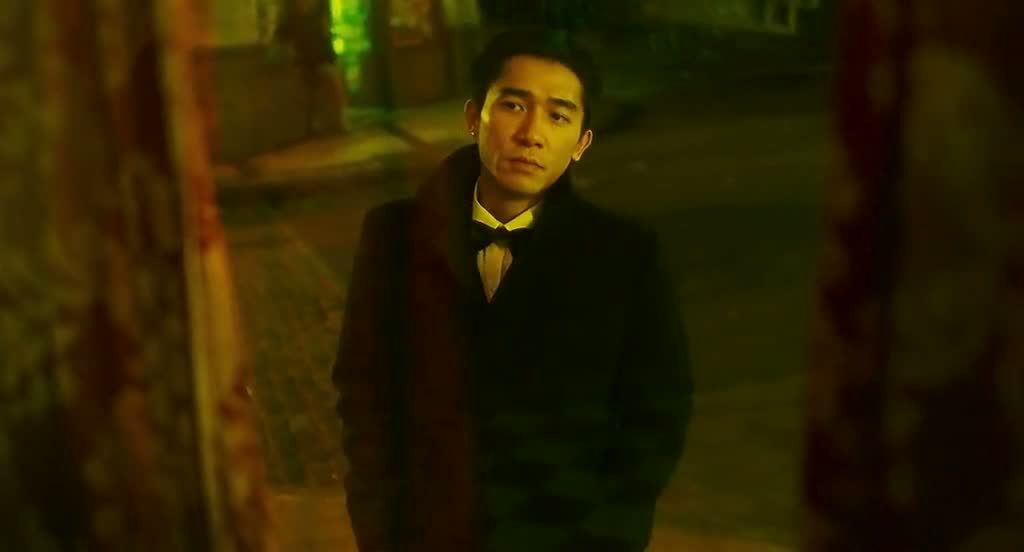
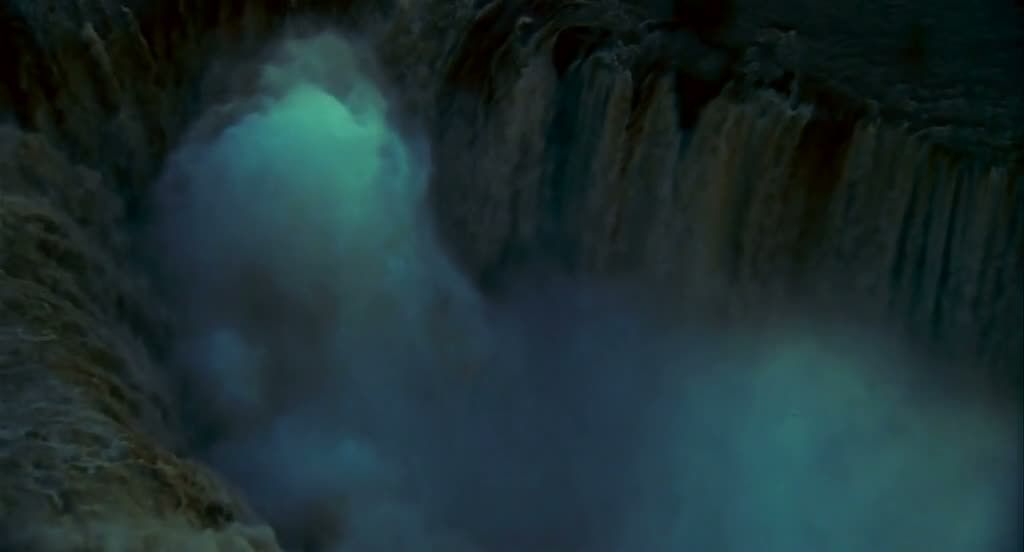
There's also tenderness in the depiction of Yiu-fai's friendship with his restaurant coworker Chang (Chen Chang), which is contrasted against the doomed love affair at the center of the film. As Yiu-fai's relationship with Po-wing collapses, his connection — platonic and hesitant, though not without suggestions of attraction and intimacy — with Chang deepens. Chang is a typically eccentric Wong character, a young man who had been nearly blind as a child and who had, as a result, developed extremely sensitive hearing and an ability to detect the smallest nuances of emotion in people's voices. He also, despite his displacement in South America, has the stability of home and family that the rootless Yiu-fai, wandering in a foreign land and disconnected from a family that's all but disowned him, only wishes he could someday return to. Those longings, the heartache and sadness of these aimless men, are expressed in typical Wong fashion. Chang carries a tape recording of Yiu-fai's tears to the "end of the world," a lighthouse in the far south of Argentina, where, it is said, his worries can be dissipated; it's a moment that looks forward to the similar scene at the end of In the Mood for Love. Po-wing also enacts the ritual of visiting his lover's apartment while Yiu-fai is not there, cleaning the place and rearranging things, a form of intimacy without direct contact that weaves through Wong's films.
Happy Together, like nearly all of Wong's films, is a deeply moving and rich work, a film about dislocation and the longing for stability. These characters have drifted far from home, isolated from their families and their homes, and they unsteadily try to make their way in an unfamiliar land even as their emotions overwhelm and unbalance them. Turned upside-down from their homes, they rush towards the churning abyss, towards the end of the world, and then pull back towards redemption and rebirth at the very last moment.

11 comments:
Incredible movie. Leslie Cheung, my favorite actor, in another amazing role.
Yes, both leads are just amazing in this. So is Chen Chang, for that matter, in an almost equally important role.
Alas the great Leslie Cheung defenistrated himself a few years back.
This is my favorite Wong Kar Wai film, and not just becuase I'm gay and understand the emotional dynamics -- though I'd be hard-pressed to say that wasn't part of it. It's also a kind of political allegory in that all the events are taking place during the period when Hong Kong is being returned to "mainland" China. So Hing Kong goes back to China just as our couple brekas apart. And in the midst of that break-up Tony Leung Chi-Wai can't recognize the fact that the sous-chef, Chen Chang, has fallen in love with him.
Taking that tape recording and playing it to the cosmos is a gesture that's repeated in In the Mood For Love when the hero whispers the love for the women he will never have into thetemple an Ankor Wat.
Wong is a true cinematic poet -- and the wor;d's greatest Frank Zappa fan.
You're right, they're all great actors for that matter, I'm just so in love with Leslie that I always find myself watching only him.
To me this is not one of the best Wong's efforts, by the way, even if I liked a lot. Something in the middle is just too arty and not straight to the point as it is, say, in Chungking Express. Maybe I didn't make myself clear. I think that sometimes Happy Together slows the pace too much, as if it seems so proud of the images on the screen that everything else can be sacrificed for the sake of it.
I somehow did not know that about Leslie Cheung, David. That's a real shame.
Interesting thoughts about the political subcurrent, which I must admit I never thought of. It makes sense: the sensation of being away from home runs all through this film, as well as the longing to be able to return. Also, sadness over nothing ever being the same again.
Gekko, my favorite Wongs are Chungking Express and 2046, but I think this is pretty much up there with them. True, it's not as hyper as those films, it's more languid and melancholy, but to me that slow, sensual pacing and moody imagery perfectly communicates what Wong wants to get across here.
About Leslie Cheung
Here's a clip that captures the melancholy essence of the whole film in a nutshell.
Jacques Rivette sez Of Happy Together: "I like it very much. But I still think that the great Asian directors are Japanese, despite the critical inflation of Asia in general and of Chinese directors in particular. I think they're able and clever, maybe a little too able and a little too clever. For example, Hou Hsiao-hsien really irritates me, even though I liked the first two of his films that appeared in Paris. I find his work completely manufactured and sort of disagreeable, but very politically correct. The last one [Goodbye South, Goodbye] is so systematic that it somehow becomes interesting again but even so, I think it's kind of a trick. Hou Hsiao-hsien and James Cameron, same problem. Whereas with Wong Kar-wai, I've had my ups and downs, but I found Happy Together incredibly touching. In that film, he's a great director, and he's taking risks. Chungking Express was his biggest success, but that was a film made on a break during shooting, and pretty minor. But it's always like that. Take Jane Campion: The Piano is the least of her four films, whereas The Portrait of a Lady is magnificent, and everybody spat on it. Same with Kitano: Fireworks is the least good of the three of his films to get a French release. But those are the rules of the game. After all, Renoir had his biggest success with La Grand Illusion."
Great review, Ed. This overtook Chungking as my favorite Wong after I re-watched it this year and realized that it captures the difficult balance of sadness and fleeting sense of reconciliation that punctuates Wong's best endings. (I hadn't noticed Yiu-fai's theft of Chang's photo before, and what that signified.)
Also, a heads-up: you flip Yiu-fai's name and misspell Po-wing's from the fifth paragraph onwards.
Interesting thoughts from Rivette as always, David.
Colin, very good point about the ending. There's something so beautiful about the loss mingled with hope that he captures in moments like that. (And thanks for pointing out my silly mistakes, they've been fixed.)
And speaking of L'amout fou, It's Helmut Berger Day at Dennis Cooper's
Post a Comment